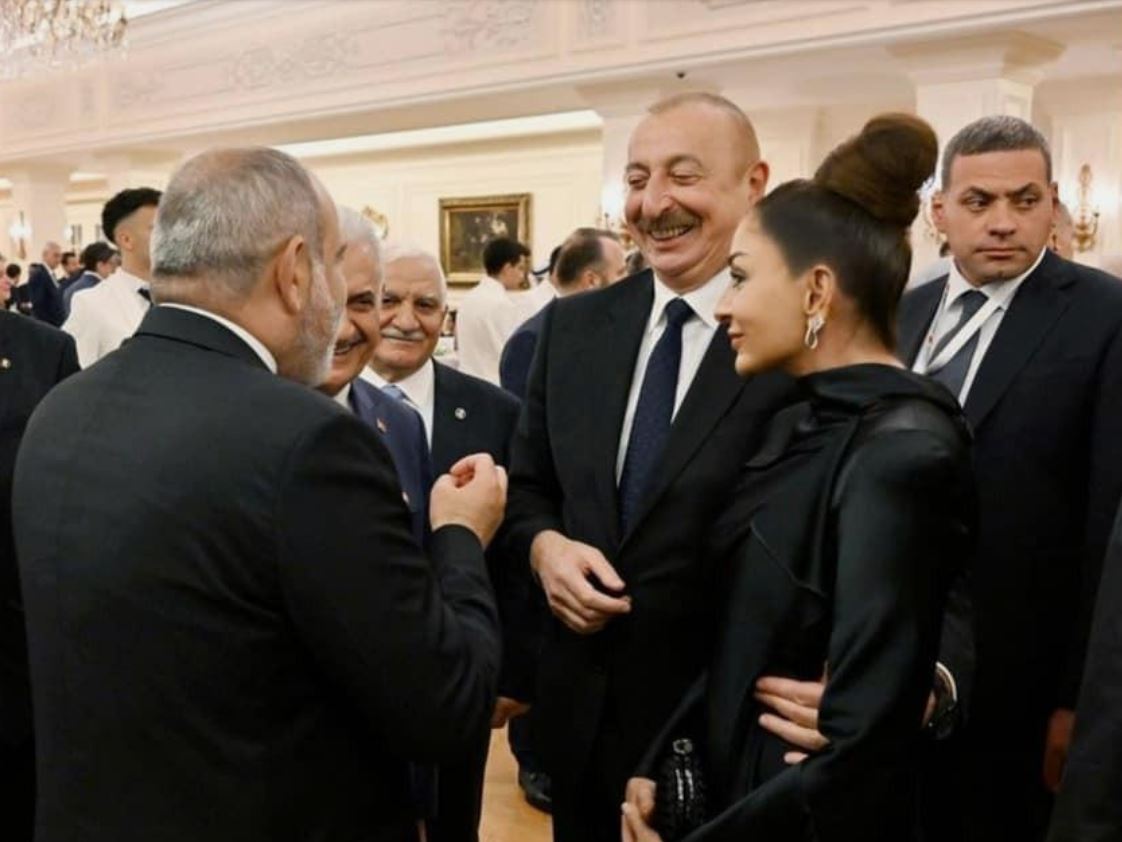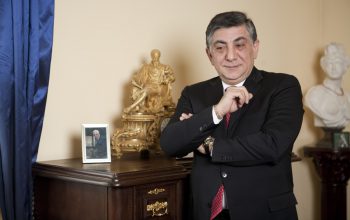Azerbaijan will hold snap leadership elections Wednesday with President Ilham Aliyev poised to secure a fifth term on a wave of popularity fueled by his army’s sweeping victory over Armenian forces in Artsakh (Nagorno-Karabakh), a region historically inhabited by Armenians.
The dictator was heralded after his troops occupied the Nagorno-Karabakh region in September from Armenian forces that controlled the enclave for three decades, a feat made possible by what many view as the treasonous capitulation by Armenia’s Prime Minister, Nikol Pashinyan.
Calling the victory “an epochal event unparalleled in Azerbaijan’s history,” Aliyev said last month that the country would hold presidential elections on all its territory for the first time.
“The elections will mark the beginning of a new era” for the country, he said.
The lightning operation saw the entire ethnic-Armenian population of more than 120,000 people ethnically cleansed from their homes and forced to flee to Armenia.
Aliyev responded to Western criticism with angry rhetoric, and last autumn he snubbed peace talks with Armenia that were to be attended by German and French leaders.
On Thursday, he accused France of “adding fuel to the fire” in the volatile Caucasus region by pursuing “anti-Azerbaijani policy”.
He also threatened to withdraw from the European Court of Human Rights, the Council of Europe rights watchdog, after refusing to invite its observers to monitor Wednesday’s elections.
The vote, which Aliyev called a year ahead of schedule, is being boycotted by the oil-rich nation’s main opposition parties.
“There are no conditions in the country for the conduct of free and fair elections,” said Ali Kerimli, leader of the opposition National Front party.
Supporters have praised Aliyev for turning a republic once thought of as a Soviet backwater into a flourishing energy supplier to Europe.
- ‘Exercise in futility’ –
But critics say he has crushed the opposition and suffocated independent media.
“All fundamental rights are being violated in the country, opposition parties can’t function normally, freedom of assembly is restricted, media are under government pressure, and political dissent is being suppressed,” Kerimli said.
Independent analyst Najmin Kamilsoy said the electoral climate in Azerbaijan was marked by a “colossal asymmetry in favour of Aliyev, coupled with the elimination of all potential opponents by repressions”.
“There is a total absence of competition — a sustained standstill,” he said.
In recent months, Azerbaijani authorities intensified a crackdown on independent media, arresting several critical journalists who have exposed graft at high levels.
“The intention is very clear. They do not want opposition voices,” said Giorgi Gogia, the Human Rights Watch associate director for the Caucasus.
He called the coming elections “an exercise in futility” with a predictable outcome since “there isn’t a legitimate or viable opposition challenge to President Aliyev’s leadership”.




